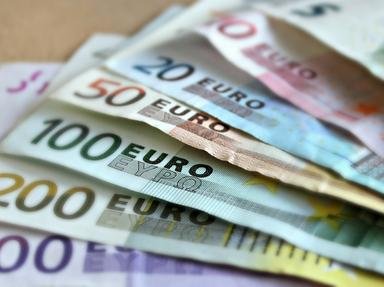
The Original Twelve Trivia Quiz
Who Got the Euro in 2002?
Of the 27 member states of the European Union, not all use the euro as their currency. Only 12 of them converted their coins and banknotes on the earliest possible date: New Year 2002. Can you pick them out?
A collection quiz
by WesleyCrusher.
Estimated time: 3 mins.
- Home
- »
- Quizzes
- »
- World Trivia
- »
- Currencies
- »
- The Euro